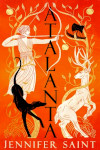Bernhard Schlink – The Reader
Posted 24th August 2015
Category: Reviews Genres: 1990s, Books About Books, Commentary, Law, Political, Spiritual, Translation
6 Comments

War comes with a price.
Publisher: Phoenix (Orion)
Pages: 216
Type: Fiction
Age: Adult
ISBN: 978-0-753-80470-4
First Published: 1995
Date Reviewed: 23rd August 2015
Rating: 5/5
Original language: German
Original title: Der Vorleser (The Reader)
Translated by: Carol Brown Janeway
At the age of fifteen, Michael has an affair with an older woman. Hanna entices him but he notes the distance she keeps between them, the way she avoids discussing her past. A few years later, whilst studying law, Michael sits in on the trial of several women who were guards in the SS. Amongst them is Hanna.
The Reader is a fantastic book. It’s compelling, informative, and quite moving, too.
Let’s start with the history the novel is based on: Schlink introduces the reader to the way war crimes of Germans were dealt with by the German courts. You get to see the views of the everyday people of their history and the characters run the gambit – people want justice, children dislike their parents even if the parents didn’t play a role (they dislike them for not fighting against the Nazis), and then you’ve Michael who doesn’t defend the war in any sense but looks at those who participated (via Hanna) in an objective light.
Of course whether or not it’s truly objective, so to speak, is down to the reader. Because the personality and personal history of Hanna is so intrinsic to who she is at the trial, and because of the affair, it could be inferred that Michael is biased towards her somewhat. He doesn’t believe she’s innocent – she’s not – but he looks at her in light of her choices, the reasons for them. (‘No, Hanna had not decided in favour of crime. She had decided against a promotion at Siemens, and had fallen into a job as a guard.’) Schlink, through Michael, then, doesn’t just question Hanna’s involvement in the war, he questions her choices away from it. He questions her as a person, questions the decisions she makes. Hanna is all about honesty when it comes to the trial – whilst the other women lie, she simply affirms or denies. Michael sees in her behaviour someone who knows this is what should happen. Where personality is involved we see the affect illiteracy has on Hanna’s answers. Beyond all else, it seems to Michael, is Hanna’s worry of being exposed as illiterate. Keeping hidden her lack of education, in a place where being able to read and write was is, is more important than avoiding jail.
This is where the idea of ‘the reader’ takes to the stage; this book is about far more, literary-wise, than Michael’s reading aloud in the bedroom. Michael realises that far from making the noted weak women of the concentration camps become her slaves, Hanna’s assigning them to read to her is an attempt to make comfortable what little time they have left. Although she later learns to read and write, Hanna is very much a reader.
In the subtext there is a question: is Hanna selfish? She provides money for a survivor to give to charities – in her, Hanna’s, name. She takes Michael to bed though he is underage and she affectively on the run. She gets those bound for the gas chambers to read to her. Are these displays of selfish or unselfish behaviour?
Both Hanna and Michael take control. Hanna controls Michael in the bedroom – not literally, but in experience – and Michael later controls their contact when she’s in jail. Michael uses Hanna’s imprisonment to atone for his guilt but only so much – he records himself narrating fiction but never goes to visit her. He exploits the literal and emotional distance between them.
Precisely because she was both close and removed in such an easy way, I didn’t want to visit her. I had the feeling she could only be what she was to me at an actual distance… How could we meet face to face without everything that had happened between us coming to the surface?
Michael liked the idea of Hanna and the teenage view of perfect love he had, he doesn’t want to spoil it; he doesn’t want to grow up, in fact – every woman he is with in his life is compared to Hanna. And he doesn’t want to face what’s happened. When Hanna leaves Michael, the reader will note she’s (finally) doing the right thing by him, taking her past with her, letting him be a child again and not rolled up in the affects of war, but of course he doesn’t see that himself.
This book isn’t atoning for involvement; it is the case that it shows how people could be pulled in – by the promise of more pay, for example – because as we know that’s a lot of what it was. We can compare Schlink’s writing of the events of WWII with Irene Némirovsky’s Suite Française: Némirovsky wrote of the war whilst she was living it as a person of Jewish heritage hiding from the Nazis. Both Schlink and Némirovsky show the human side of the Nazi party, or, rather, the human side to those who were at the bottom, the low-ranking soldiers who did what they were told to do, or at the very least did what they felt they had to do. Of course in Némirovsky’s case this is more profound, she’s giving a voice to fictional versions of the people who were hunting her down as she wrote, but both Némirovsky and Schlink write in such a way that asks for thought, does not suggest forgiveness nor ask for it.
It’s almost too obvious to state, but there is a lot of information about Auschwitz in The Reader, and about the role of women in the SS. The books ends in a way you may feel it ‘ought’ whilst showing there are far more reasons behind it than the ones on the surface.
A brief word on the writing – beautiful. Simple, to the point, and full of sub-textual imagery. The words may technically be Janeway’s but Schlink’s prose seeps through.
The Reader is a book of great magnitude. The potential for impact is high, the content hard to read but invaluable, the journey sad but necessary. It is a book for everyone.
Related Books
August 24, 2015, 4:13 pm
I am so glad you loved this book, Charlie. I did too. I read it several years ago, and it was one of my first real looks into how Germans today view their own part in WWII. I found Michael and Hanna’s stories so interesting–much more there than what was on the surface. And, I agree, the writing is beautiful.
August 24, 2015, 5:46 pm
Interesting to hear your thoughts on the book. I watched the film a couple of years ago. Kate Winslet is very good in it.
August 24, 2015, 7:21 pm
It’s a shame I watched the film and I still haven’t read the book, because I suppose the book is far more better and thought-provoking.
But I loved the film; I had no idea about what it was about before watching it and it really blew my mind. It raises up so many questions about humans.
Great review, Charlie!
I have to read it anyway, because I think I’ll enjoy it too despite knowing the story already.
August 25, 2015, 2:22 am
Awesome review! I’m really interested in the way courts dealt with the Holocaust in the years that followed. I have a book out from my university library right now about truth commissions that were organized in various European countries to deal with their involvement in the Holocaust. The intro is already super fascinating, can’t wait to get deeper into it.
6 Comments
Comments closed
























August 24, 2015, 11:51 am
The movie based on the book was quite a hit a few years ago.It may have won some awards.